The HRCMA comprises 33 credits to make you an expert in health and risk communication. Students complete core courses in the following areas:
HRCMA Courses
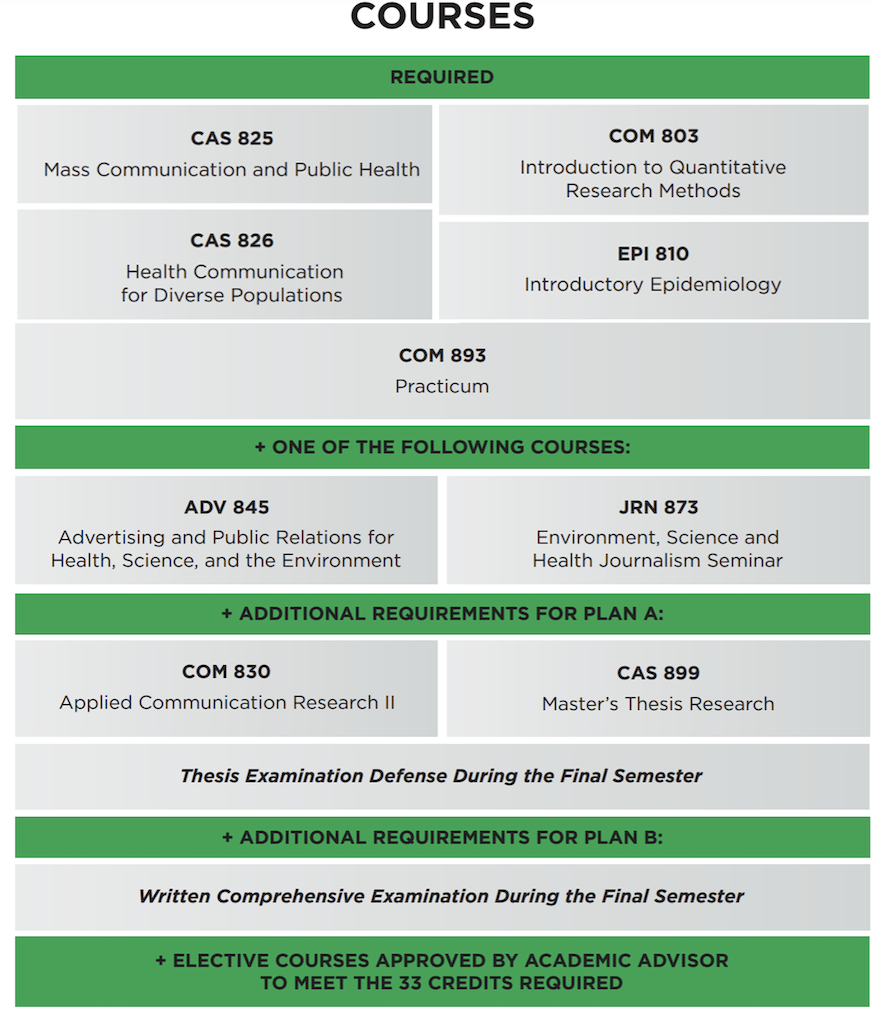
Mass Communication and Public Health: Health campaigns in domestic and international contexts with a focus on principles of effective messaging - designed for MA students to explore how mass media (including social media and digital interventions) influence public health perceptions, behaviors, and outcomes.
Health Communication for Diverse Populations: Theory, research, and practice of communicating with specialized populations in clinical and public health contexts - MA students gain insights into culturally sensitive strategies and inclusive approaches for engaging diverse communities.
Introduction to Quantitative Research Methods: Dive into the world of quantitative social and data science research methods - designed to empower MA students with the tools essential for examining societal phenomena, conducting rigorous studies, and informing evidence-based communication strategies.
Introduction to Epidemiology: Explore the principles of epidemiology and its vital role in health communication strategies - designed to equip MA students with essential skills to analyze, interpret, and effectively communicate public health data and trends.
Extended Courses and Practicum
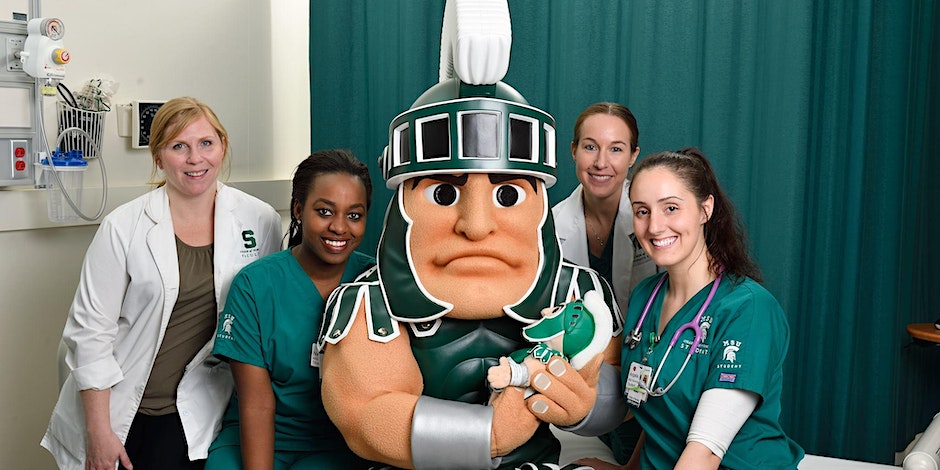
Advertising and PR for Health, Science, and the Environment OR Environment, Health, and Science Journalism: Issues in environmental, science and health journalism | Theory and practice of how public relations professionals work with the news media to communicate with external publics
Plan A (Thesis Track) and Plan B (Exam Track) Choices: Depending on the track chosen, students can either take further research-intensive courses or courses that lead to a specialization in their area.
Practicum: A practicum in the field of health communication - designed to deliver real-world experiences and build connections with potential employers.
List of Potential Elective Courses
Potential course electives
Note: this is a list based on past courses offered at MSU. New courses are constantly added, and many special topics courses (e.g. about Artificial Intelligence, Digital Interventions, Health and Exercise Games, etc.) are constantly emerging. Check out the MSU Class Search and Information-Boards to discover suitable courses
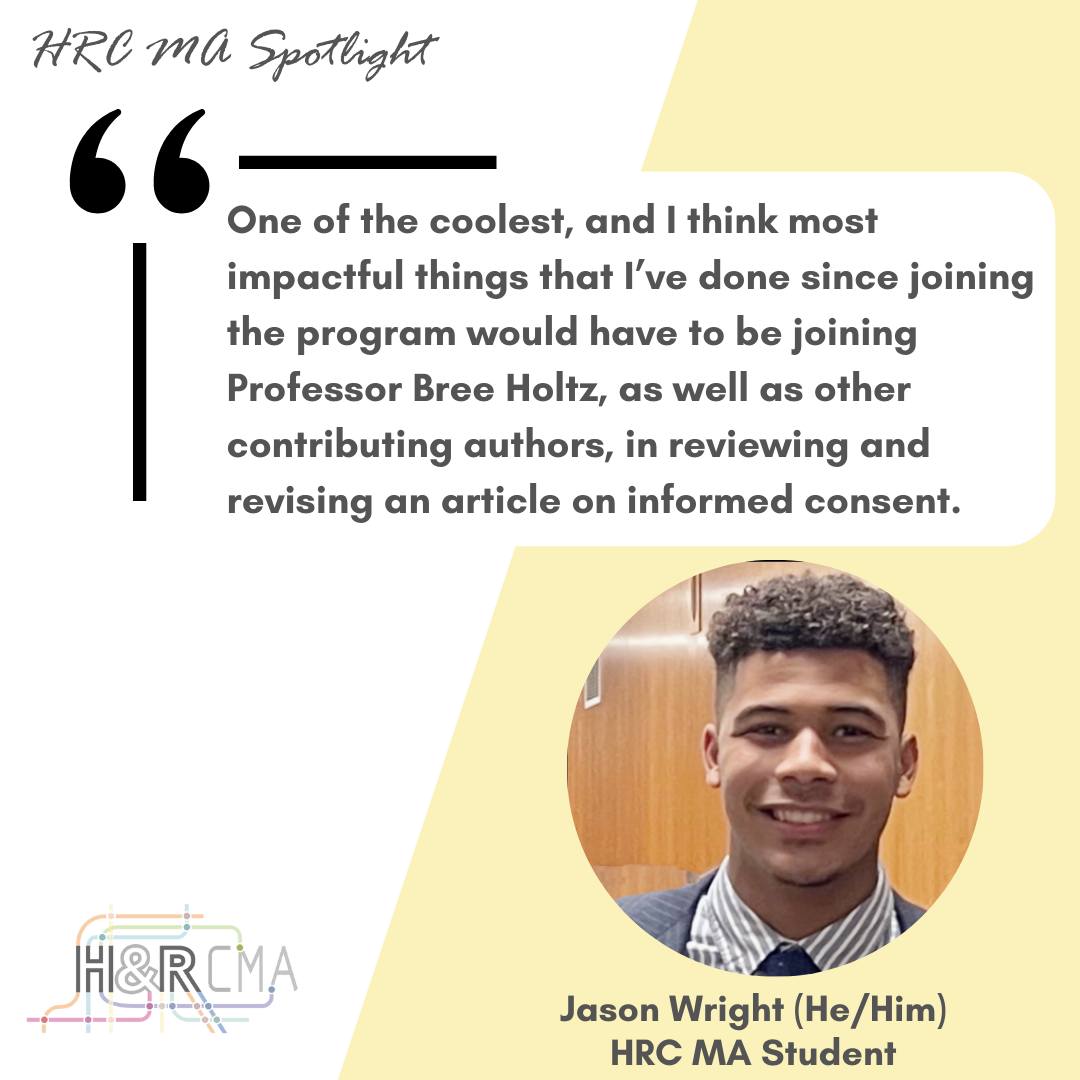
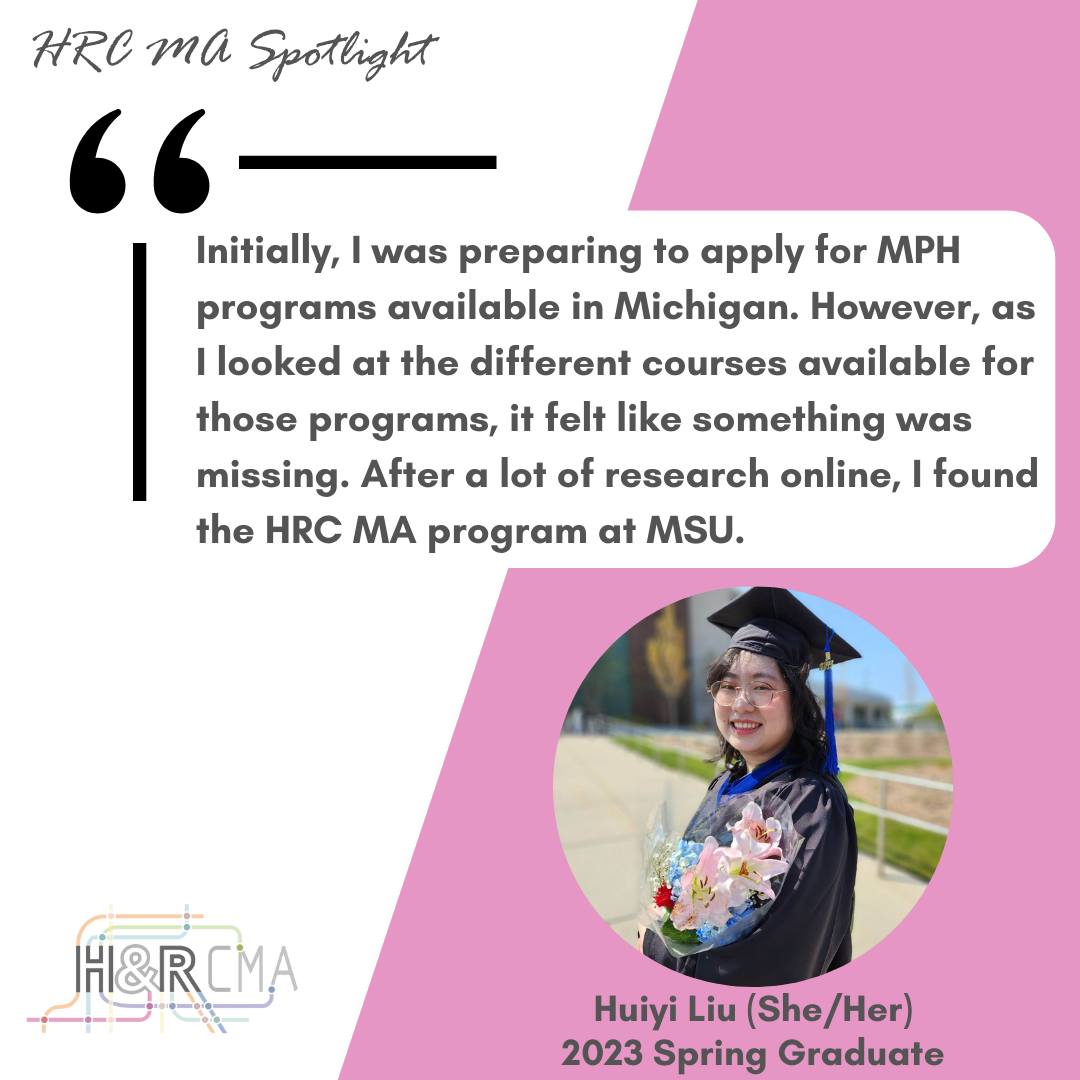

ADV 430 Social Marketing: Strategy and Practice Fall/Spring of every year. 3 credits. Perquisite: (MKT 300 or concurrently) or (MKT 327 or concurrently) Use of marketing concepts and tools from sociology, psychology, commercial marketing, and public opinion research to promote individuals' pro-social and health behaviors. Application of strategies that improve quality of life and result in behavioral and societal changes in positive ways.
ADV 431 – Monitoring and Measuring Social Media of Brands
Fall/Spring of every year. 3 credits. Perquisite: ADV 420. Restrictions: Open to students in the Department of Advertising and Public Relations or in the Sports Business Management Minor. Social media monitoring and analysis for businesses and brands including advanced keyword building and search techniques. Discovering business insights through social media listening and applying insights through a social media response plan.
ADV 433 – Internet Video Promotional Strategy
Fall/Spring of every year. 3 credits. Perquisite: ADV 420. Promotional video production focusing on brands or companies. Use of metrics and analytical tools to determine impact of promotional video. Video distribution strategies.
ADV 442 – Digital Analytics
Fall/Spring of every year. 3 credits. Restrictions: Open to students in the Department of Advertising and Public Relations. Data collection, analysis and reporting on cross- or multi-channel media analytics in order to inform strategic advertising and public relations decision-making. Evaluate impact of integrated communication decisions.
ADV 825 – Advertising and Public Relations Strategies
Fall every year. 3 credits. Strategic planning for advertising and public relations campaigns. Emphasis on research for strategy and campaign evaluation, media planning, media relations, and integrating advertising and public relations tactics.
ADV 892 Advertising Special Topics
Fall/Spring of every year. 3 credits. Emerging topics in advertising and public relations, such as generative AI, emerging media (Virtual Reality), or other trends.
ANP 425: Issues in Medical Anthropology
Fall every year. 3 credits. Selected topics in the anthropological investigation of health issues with an emphasis on critical analysis of cultural, historical, and conceptual bases for trends in health research. Topics vary.
ANP 858: Gender, Justice and Environmental Change: Issues and Concepts
Fall every year. 3 credits. Issues and concepts related to gender, ecology, and environmental studies. Key debates and theoretical approaches to addressing environmental issues from a gender and social justice perspective. Gender and environment issues and processes from a global perspective.
CAS 892 Special Topics (especially topics, Risk Communication or Health Communication & Technology).
Fall/Spring of every year. Summer of every year. Variable 1 to 6 credits. May earn a maximum of 16 credits in all enrollments. Varied topics pertaining to advanced study of communication processes.
COM 820: Communication Theory and Process
Fall of every year. 3 credits. Role that theory plays in different areas of communication scholarship.
COM 860 Persuasion
Fall. 3 credits. Use of messages to gain compliance and effect social change. Persuasion and attitude change from classical theories to contemporary situations.
CSUS 446: Environmental Issues and Public Policy
Fall every year. 3 credits. Interrelationship of science and public policy in resolving environmental issues. Technical, social, economic, and legal influences. Case study approach.
CSUS 433: Grant Writing and Fund Development
Fall/Spring of every year. 3 credits. Theoretical and practical background for proposal writing. Program and strategic planning. Fund-raising and organizational advancement.
ESP 801 Physical, Chemical & Biological Processes of the Environment.
Fall. 3 credits. Open to all graduate students will approval from instructor. Interdisciplinary concepts in the natural sciences related to environmental problems. Ecology and human health.
ESP 803 Human and Ecological Health Assessment and Management
Fall. 3 credits. Concepts and techniques used to evaluate human and ecological health impacts from anthropogenic activities. Policy formulation and management strategies to mitigate health effects.
HCM 808: Healthcare systems and economic policy
Fall/Spring of every year. Credits Vary from 1 to 3. Organization of U.S. health system, policy process, and services. Dynamics of economic theory, valuation, financing and delivery of healthcare.
HDFS 442: Ethnic Families in America
Fall/Spring/Summer of every year. 3 credits. Historical, structural, and functional components of selected ethnic minority family systems in America. Lifestyles, pressures, adaptations, viability, and continuity.
HDFS 448: Child and Family Policy
Fall/Spring of every year. 3 credits. Issues faced by American families and children. Relationships among social science research, theory, and public policy.
HNF 840 Human Nutrition and Chronic Diseases
Fall of odd years. 3 credits. Dietary intervention and treatment of chronic diseases: obesity, cardiovascular disease, diabetes, gastrointestinal disorders and cancer.
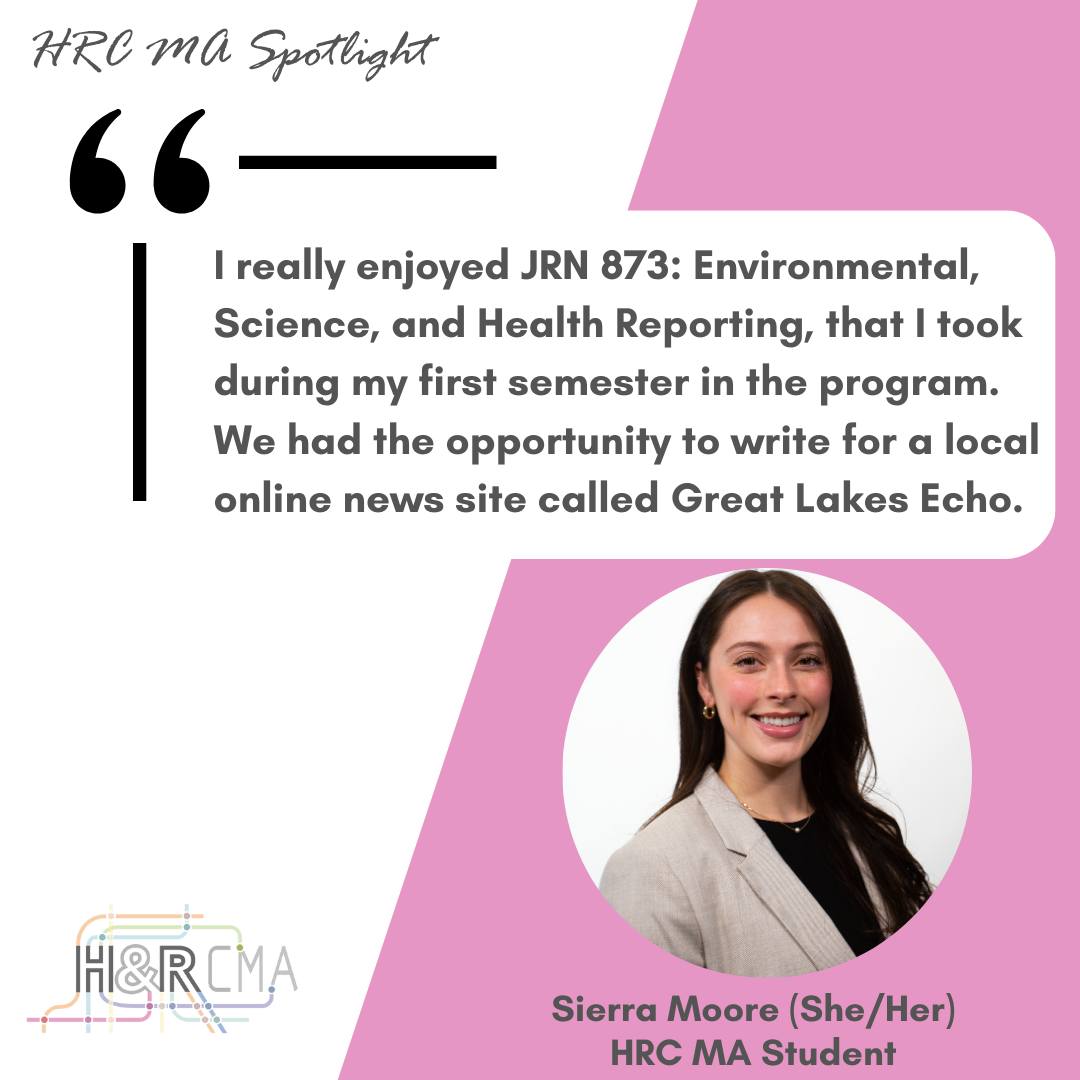
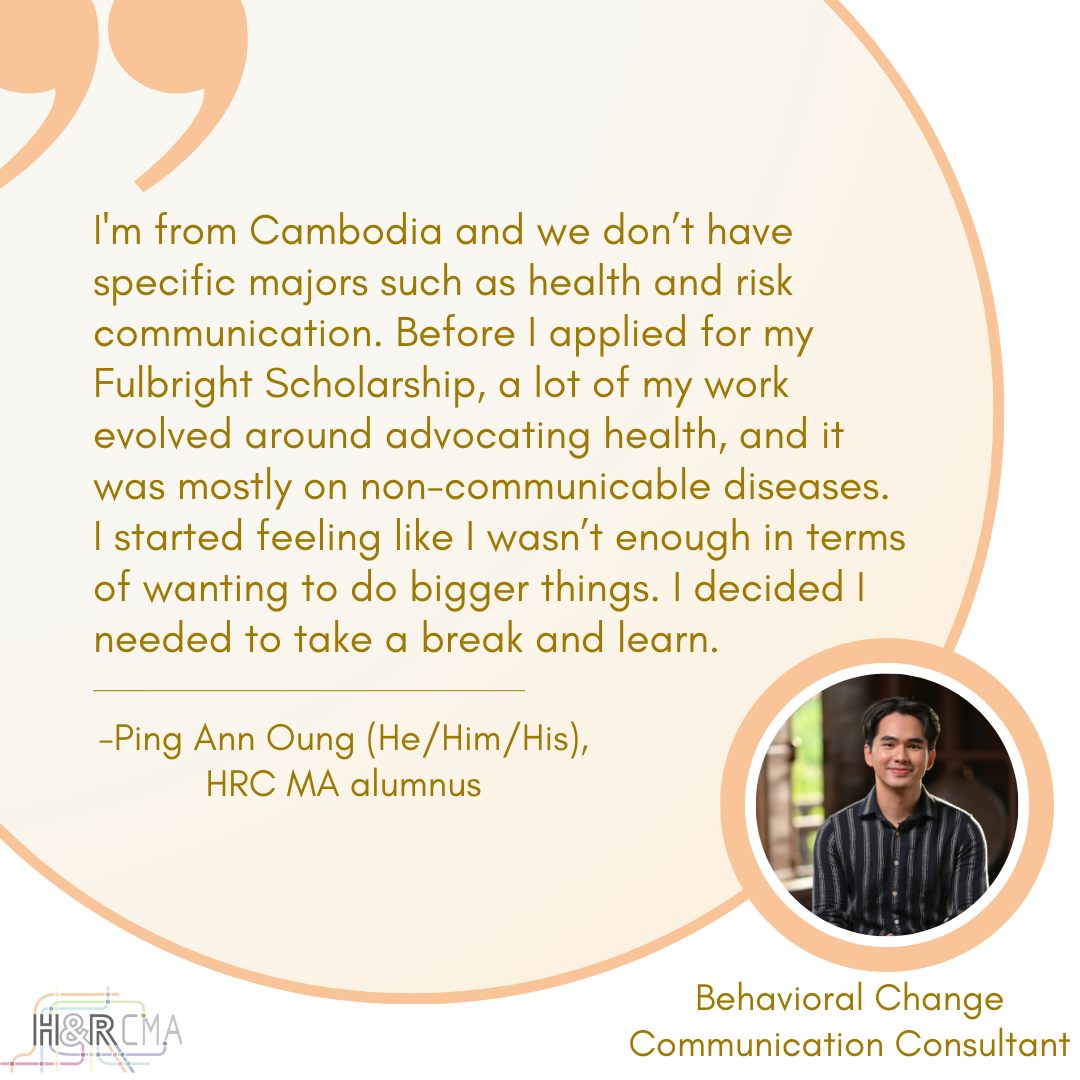

JRN 872: Environmental Science & Health Reporting Topics
Fall and Spring. 3 credits. Resources and practical experience in reporting and writing about environment, science and health topics.
JRN 892 Journalism Special Topics
Fall/Spring/Summer of every year. 3 credits. A student may earn a maximum of 6 credits in all enrollments for this course. Restrictions: Open only to graduate students in Journalism. Topics vary.
MI 450: Creating Human-Centered Technology
Fall/Spring of every year. 3 credits. Prerequisite: MI 320 and MI 350 and MI 420 or approval of department. Entire human-centered design process, including assessing needs, forming ideas, designing a solution, building prototypes, evaluating the effectiveness of those solutions, and iterating to improve the solutions. Creation of a portfolio piece to illustrate capabilities.
MI 462: Social Media and Social Computing (Fall)
Fall of every year. 3 credits. Prerequisite: MI 349 or MI 361 or approval of department. Social and technological perspectives on how people collaborate using social media and other information and communication technologies. Experience with using multiple collaboration platforms and analysis of differences between enabling technologies.
MKT 805 Marketing Management
Spring of every year. Variable from 2-3 credits. Strategic and decision-making aspects of marketing functions. Analysis, coordination, execution of marketing programs. Development of strategies and tactics. Segmentation, marketing mix, market response modeling, and ethics in a global context.
PR 425 – Public Relations and Ethics in a Digital World
Fall/Spring of every year, Summer of every year. 3 credits. Restrictions: Open to students in the Public Relations Minor or in the Public Relations major. Strategic planning and ethical considerations in public relations, social media and digital media.
ADV 816 – Fundraising and Philanthropy in Nonprofit
Spring of every year. 3 credits. Principles, function, practice, ethics, and process of fundraising and philanthropic development. Societal role of nonprofit organizations.
ADV 835 – Multimedia Content Creation for Advertising and Public Relations
Spring of every year. 3 credits. Creating strategy-driven, multimedia content for advertising and public relations campaigns. Emphasis on campaign objectives, brand positioning, message strategy, and creative execution.
ADV 840 – Advertising and Public Relations for Social Impact
Spring of every year. 3 credits. Principles and techniques for social impact advertising and public relations campaigns. Emphasis on strategies for non-profit, activist, and political organizations.
ANP 826: International Development: Theory and Practice
Spring of every year. 3 credits. Evolution of international development theory across disciplines. Changing conceptualizations, measurements, processes and effects of development and poverty. Ethnicity, social class, gender, and community influences on socioeconomic processes. Current issues, concerns, and strategic alternatives.
ANP 834 Medical Anthropology Overview
Spring of every year. 3 credits. Restrictions: Approval of department. Note: assumes advanced coursework in Anthropology. Anthropological approaches to the study of sickness, disease, and healing. Medical anthropology as a sub discipline.
ANP 835: Topics in Medical Anthropology
Spring of every year. 3 credits. Restrictions: Open to graduate students in the Department of Anthropology or approval of department. Seminar in the description and analysis of themes in medical anthropology.
COM 830 – Applied Communication Research II
Spring. 3 credits. Thesis production. Reporting and evaluating the results of communication research.
CSUS 464: Environmental and Natural Resource Policy in Michigan
Spring of every year. 3 credits. Perquisite: CSUS 200 or EEM 255 or approval of department. State legislative process and its role in environmental and natural resource policy formulation. Influence of lobbying, citizen engagement and political factors.
CSUS 473: Social Entrepreneurship and Community Sustainability
Spring of every year. 3 credits. Start-up and management of private sector, non-profit, and public organizations. Identifying and overcoming the challenges associated with the sustainable operations of small organizations.
CSUS 805: Proposal Development for Interdisciplinary Inquiry
Spring of every year. 3 credits. Perquisite: CSUS 800 and CSUS 802. Preparation of proposals for inquiry in practical and research settings. Application of inquiry concepts and practices in designing projects or research. Professional oral and written communications in sustainability inquiry. Processes of peer support and critique. Offered first ten weeks of semester.
HM 804: Public Health Policy and Administration
Spring of every year. 3 credits. Restrictions: Open to master's students in the Public Health Major. Structural, operational, leadership and components of health policy and public health administration. Community health assessment, advocacy and evaluation within public health agencies and programs. Major business systems used for administration of public health agencies and programs.
MI 425: Advanced Data Analysis
Spring of every year. 3 credits. Perquisite: MI 320. Conduct research using appropriate statistical models and to communicate their results to both technical and nontechnical audiences. Foundation in probability theory, maximum likelihood, and various types of regression models to investigate and implement a wide range of advanced statistical models. Manipulate data to answer the research questions in the field of Media and Information.
MI 851: Understanding and Managing Social Media Lecture
Spring of every year. 3 credits. Overview of social media applications and services, social media history, social media affordances, effects on individuals, organizations, and society, and best practices for the management and study of social media.